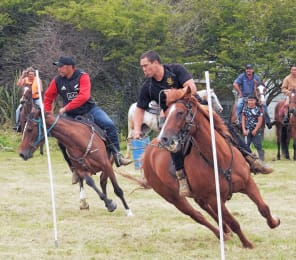
Re: Have to pull our weight, on joining AUKUS.
I challenge Dennis Pennefather’s quote from Roman times. While “If you want peace, prepare for war” had its place way back then, it is no longer relevant in the 21st century. Military dominance won’t solve the many global challenges we face now. This century’s global conflict trends prove that “preparing for war” has not brought peace.
Also, Clive Bibby’s “pull our weight as part of defence alliances” needs to be challenged. Australia, the United Kingdom and United States joined together as AUKUS supporting Australia to acquire its first conventionally armed, nuclear-powered submarine fleet.
New Zealand is a nuclear-free zone by law, meaning no nuclear weapons or nuclear-powered ships are allowed in our territory.
Keeping New Zealand and the Pacific nuclear-free was the main theme of the New Zealand government’s recent Pacific mission. The leaders of Tonga, the Cook Islands and Samoa didn’t want the Pacific to be seen as an area where people would take the licence of nuclear arrangements.
Today the world’s nine nuclear-armed nations have roughly 12,500 nuclear weapons between them and won’t give them up.
The US government’s decision to develop a hydrogen bomb, first tested in 1945, committed the United States to an escalating arms race with the Soviet Union after its first nuclear test explosion four years later. Other powerful countries followed — the United Kingdom in 1952, France 1960, China 1964, India 1974, Pakistan 1998, North Korea 2006. Israel also became a nuclear power with warheads supplied by the US. Now there are nine nuclear-power countries together pushing the world closer to the brink of nuclear conflict.
Nuclear powers promote the idea of using nuclear weapons as a deterrent and overstate the security value of nuclear weapons, reinforcing the illusion that nuclear weapons are essential. For these reasons, Nuclear Non-Proliferation Treaty (NPT) conferences between the nuclear powers repeatedly failed.
Nuclear-free New Zealand is one of the 70 countries openly opposed to nuclear escalation.
As the United States gears up for a presidential election and the administration juggles support for Ukraine, growing conflict in the Middle East and a host of other challenges, Washington will need to address three key nuclear weapons challenges in 2024: managing Russia’s nuclear threats; China’s opaque nuclear build-up; and North Korea’s increasing provocations. Also, US allies are understandably sceptical over whether the United States can and will maintain its alliance commitments. Managing these concerns is especially challenging in an election year.
History has proven the USA presents the biggest threat of nuclear war. It was the US that invented the nuclear umbrella and it faces various new challenges when it comes to the rise of other nuclear powers and weapons of mass destruction.
The latest news is that Iran continues to enrich uranium well beyond the need for commercial use, despite international pressures to desist. Yet America supports nearby Israel already having a stockpile of nuclear weapons at the ready.
US president Dwight D. Eisenhower threatened the use of nuclear weapons in 1953 to end the Korean War, if the Chinese refused to negotiate.
Now President Joe Biden’s administration proposes taking older nuclear bombs and rebuilding them into new ones, so it can replace the largest nuke in its arsenal. North Korea, Iran, China and Russia are seen as potential targets.
Nuclear-free NZ: “Fighting for nuclear disarmament has been part of the day job for our diplomats for over thirty years,” says an article posted by New Zealand Foreign Affairs and Trade.
“Ambassador for Disarmament, Dell Higgie, describes it as the issue that has ‘most dominated’ our efforts at the United Nations — and that continues to this day.”
Let’s stay nuclear free.










14 comments
As we are geographically and historically positioned now with the present turmoil in the world, we need to be under the protection of a traditional alliance and we have little choice but to conclude that where Aussie goes, we go in terms of defence pacts. It is ridiculous to imagine that if there is warfare in the Pacific, our little country could remain neutral.
Even if we were signed up to Aukus, our actual contribution to the military defence of our country and our allies would be laughable.
Let us call a 'spade' a spade and realise that if China wanted to set up a military port here, and we were unprotected by a treaty, they could simply 'walk in' and do it.
Perhaps you feel that the UN could protect us if such a 'takeover' looked likely? Consider then how well the UN is doing in protecting Gaza at the present time.
Of course, even if we were not covered by Aukus, Australia and its allies would move their military hardware into our country to protect us from our own folly and to protect their own 'back-doors'.
If warfare or even the threat of war comes to the Southern Pacific, do you really think that as a country we can stay neutral and sit in our little oasis, quietly smelling the flowers?
JOIN THE CONVERSATION
Read and post comments with a
Newsroom Pro subscription.
Subscribe now to start a free
28-day trial.